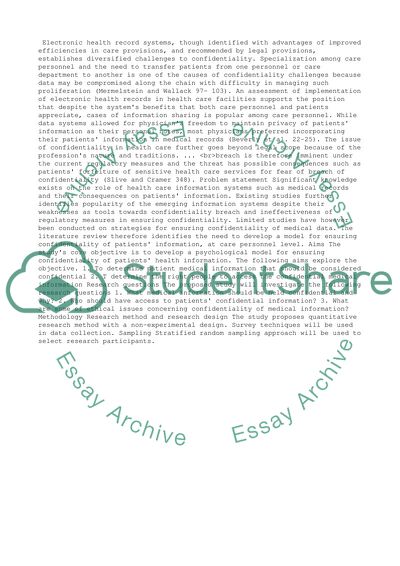Cite this document
(“Confidential medical information and parties who should have access to Research Paper”, n.d.)
Confidential medical information and parties who should have access to Research Paper. Retrieved from https://studentshare.org/management/1483311-what-medical-information-should-be-confidential
Confidential medical information and parties who should have access to Research Paper. Retrieved from https://studentshare.org/management/1483311-what-medical-information-should-be-confidential
(Confidential Medical Information and Parties Who Should Have Access to Research Paper)
Confidential Medical Information and Parties Who Should Have Access to Research Paper. https://studentshare.org/management/1483311-what-medical-information-should-be-confidential.
Confidential Medical Information and Parties Who Should Have Access to Research Paper. https://studentshare.org/management/1483311-what-medical-information-should-be-confidential.
“Confidential Medical Information and Parties Who Should Have Access to Research Paper”, n.d. https://studentshare.org/management/1483311-what-medical-information-should-be-confidential.


